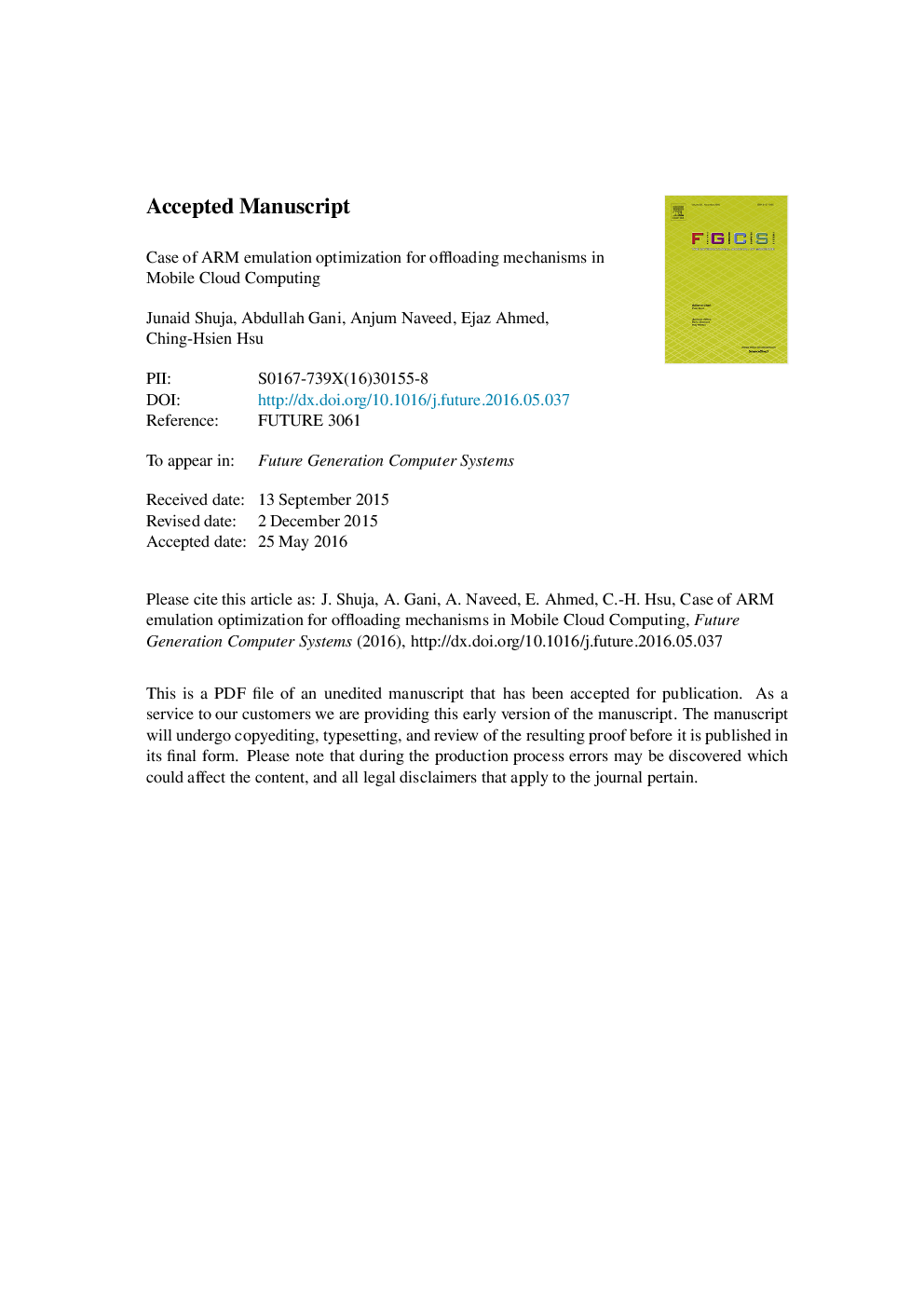| Article ID | Journal | Published Year | Pages | File Type |
|---|---|---|---|---|
| 4950330 | Future Generation Computer Systems | 2017 | 15 Pages |
Abstract
The Mobile Cloud Computing (MCC) paradigm depends on efficient offloading of computation from the resource constrained mobile device to the resource rich cloud server. The computational offloading is assisted by system virtualization, application virtualization, and process state migration. However, system and application virtualization techniques force unnecessary overhead on applications that require offloading to the cloud and applications that do not. Moreover, smartphones and cloud data centers are based on heterogeneous processor architectures, such as, ARM and x86. As a result, process migrated from a smartphone needs translation or emulation on the cloud server. Therefore, instruction emulation is a necessary criterion for a comprehensive MCC framework. In this paper, we evaluate the overhead of the system and application virtualization techniques and emulation frameworks that enable MCC offloading mechanisms. We find that the overhead of system and application virtualization can be as high as 4.51% and 55.18% respectively for the SciMark benchmark. Moreover, ARM to Intel device emulation overhead can be as high as 55.53%. We provide a proof of concept of emulation speedup by utilizing efficient Single Instruction, Multiple Data (SIMD) translations. We conclude that the overhead of virtualization and emulation techniques need to be reduced for efficient MCC offloading frameworks.
Keywords
Related Topics
Physical Sciences and Engineering
Computer Science
Computational Theory and Mathematics
Authors
Junaid Shuja, Abdullah Gani, Anjum Naveed, Ejaz Ahmed, Ching-Hsien Hsu,
